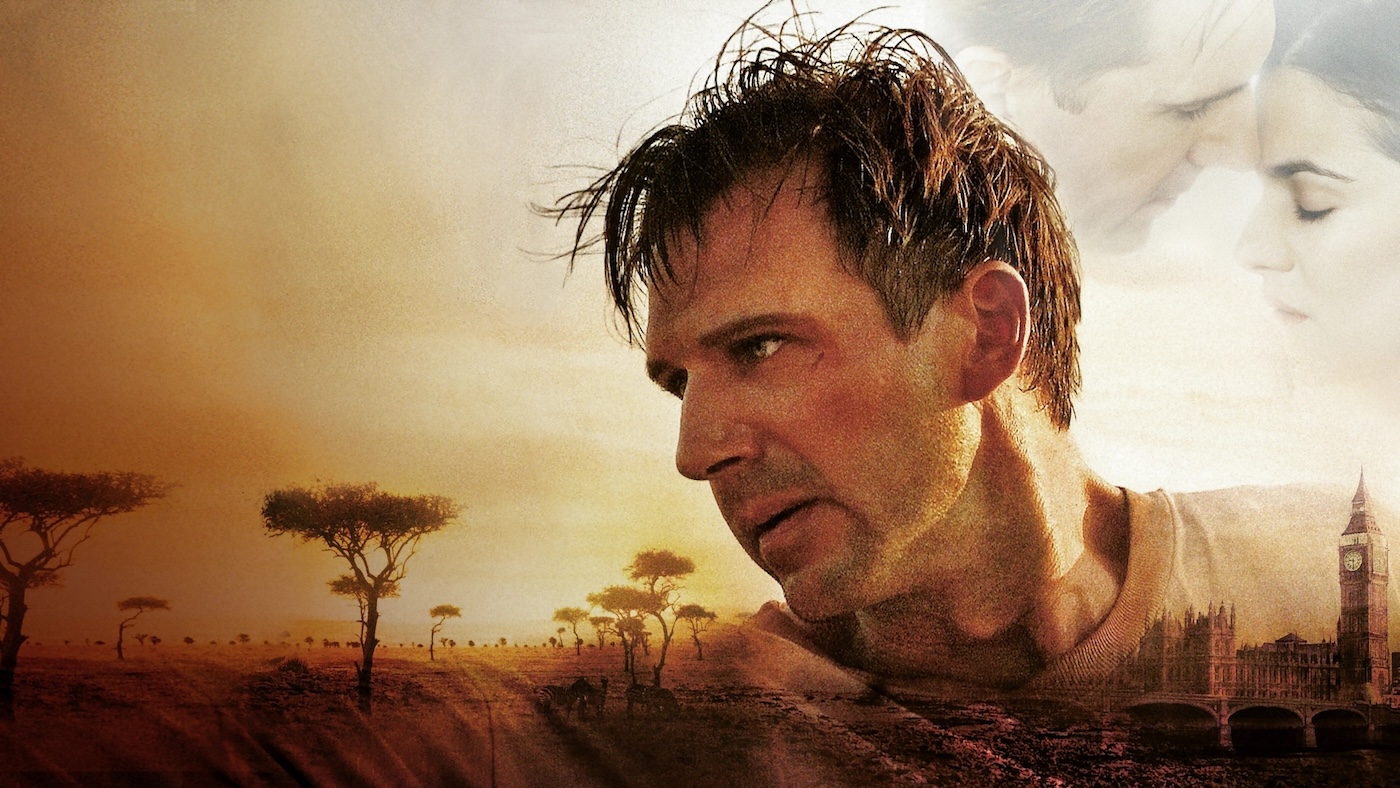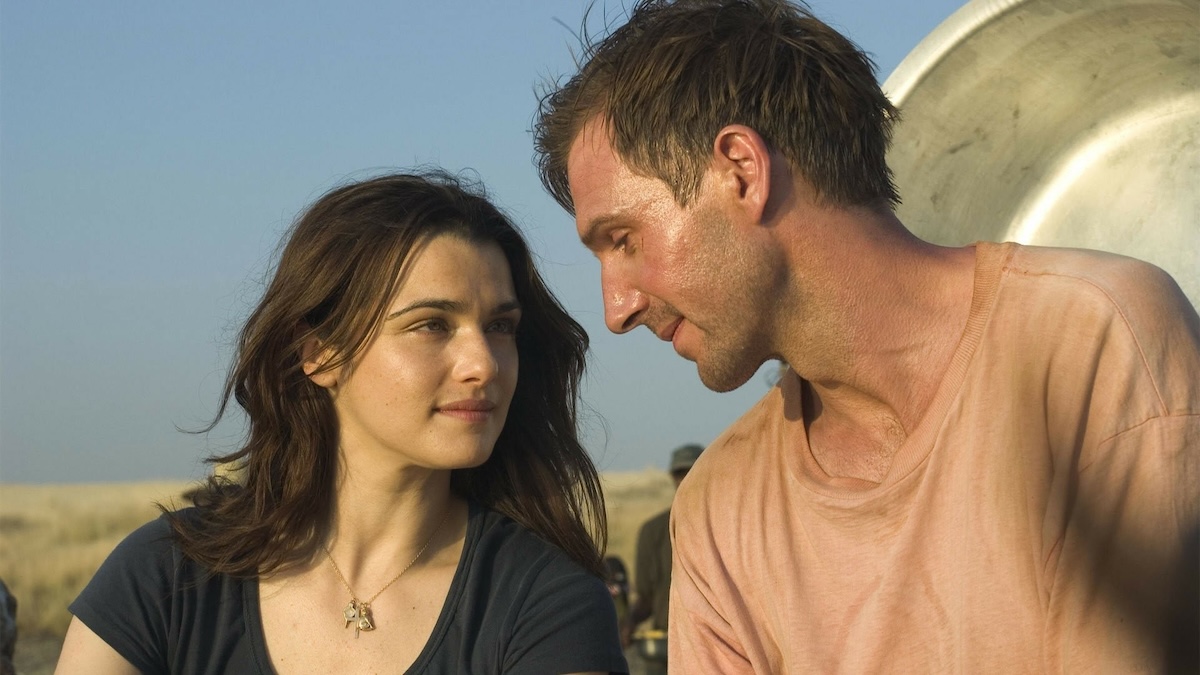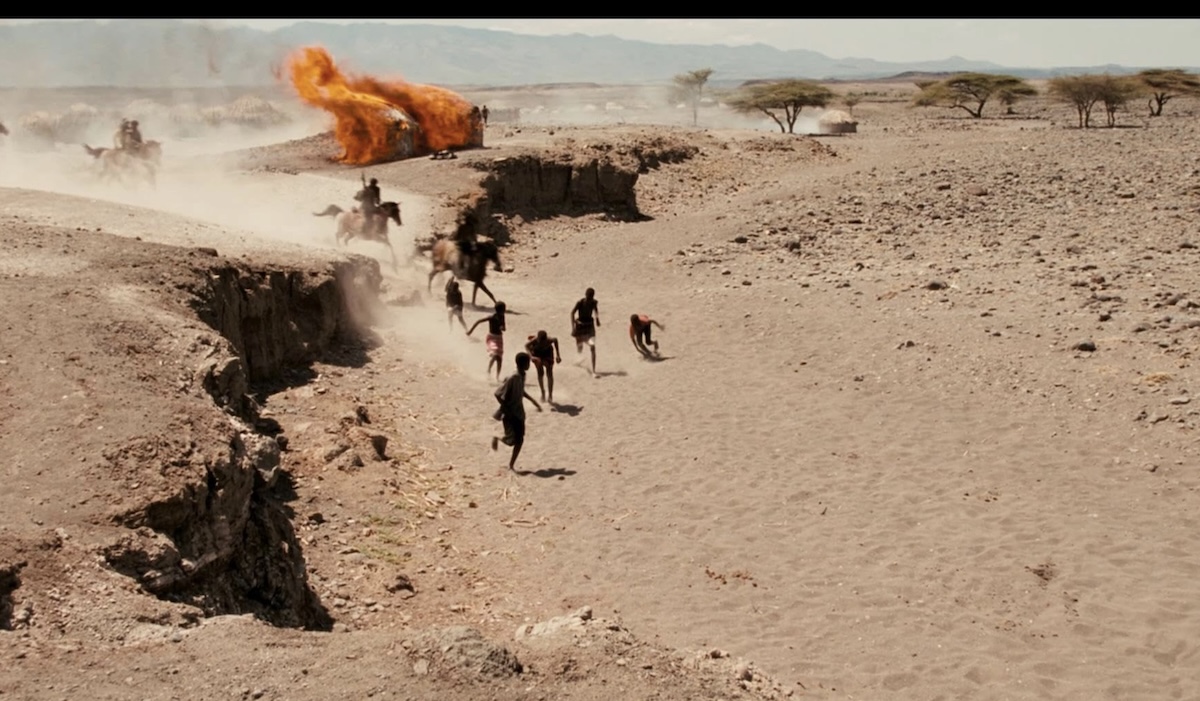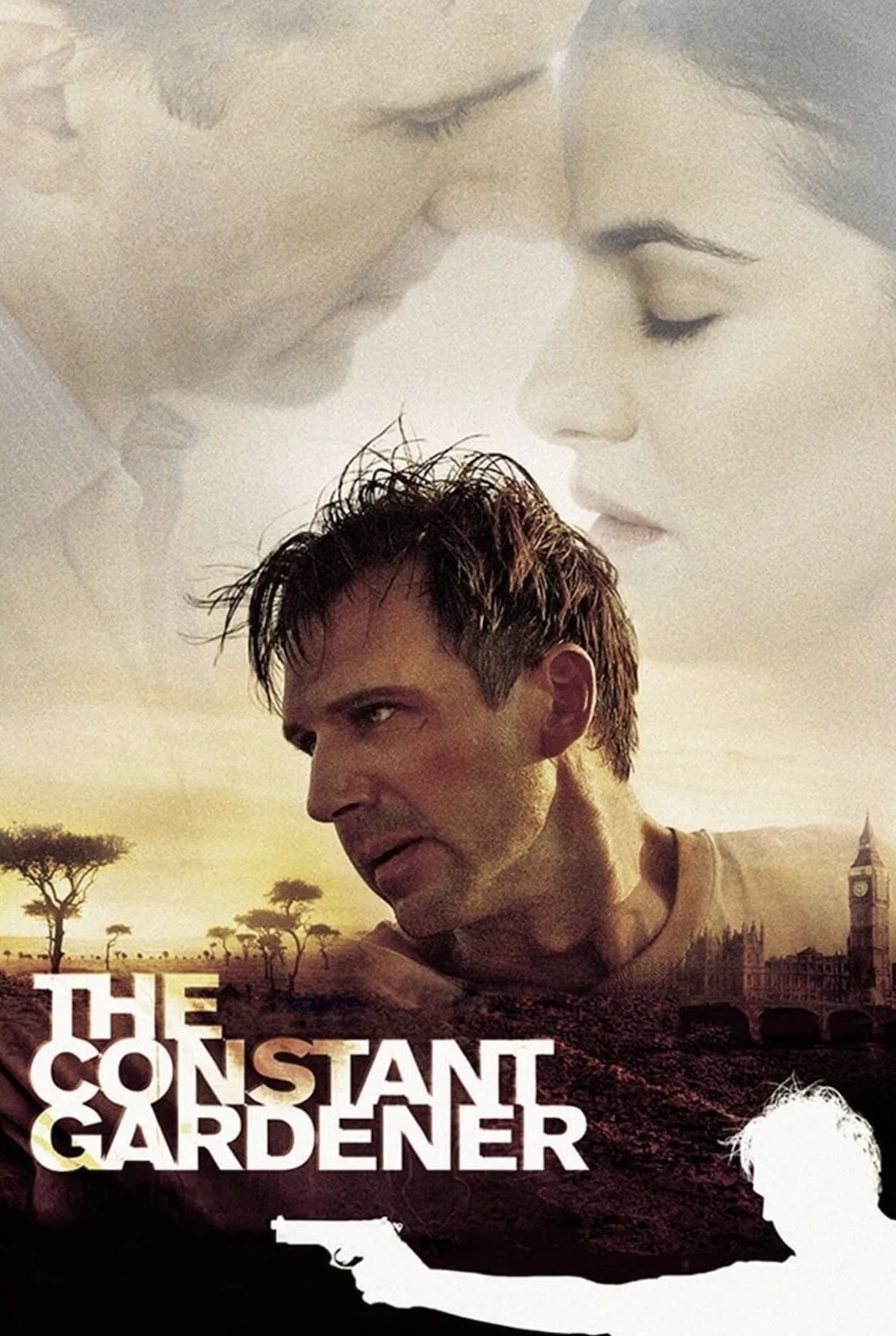THE CONSTANT GARDENER (2000)
A widower's transcontinental quest to find answers about his wife's death leads him to explosive secrets.

A widower's transcontinental quest to find answers about his wife's death leads him to explosive secrets.

Death is not the end in Fernando Meirelles’ drama thriller The Constant Gardener. It’s only the beginning, both in this film’s plotting and in what it signifies. For a film that explores the ins and outs of a depressingly realistic conspiracy, its hopeful notes are surprisingly resonant, especially in how it unpacks the importance of leaving behind a legacy. Protagonist Justin Quayle (Ralph Fiennes) normally wouldn’t ever give thought to such notions, with the mild-mannered and aggravatingly passive English diplomat devoting more time to horticulture than humanitarian crises or lofty notions. It’s only after his wife Tessa (Rachel Weisz) dies in a very suspicious manner that he’s forced to confront the life she lived, and just as importantly, who she really was, uncovering aspects of her life that this protagonist neglected to pay attention to for fear of what he would discover.
The core idea at the heart of The Constant Gardener is a touching and poignant one, while its application is as tender as it is frustrating. When Meirelles’ film settles into a comfortable rhythm it’s a marvel, but it takes an awfully long time for that to happen. The Brazilian director’s stylisations often hamper that emotional experience, especially with flashy, aggressive sequences that serve as an outlet for an editing style that seriously lacks an appropriate attention span the kind of movie it’s housed in. Such fast-paced moments, with quick cuts and constant zoom-ins, do nothing to heighten the paranoia inherent to this thriller. Instead of letting the shot compositions, blocking, and cinematography imbue this story with a unique tone or feeling, the film’s ever-changing lighting and colour grading do far too much of the heavy lifting, insisting on an emotional experience that isn’t artfully demonstrated. The director’s prior film, City of God (2002), was just as, if not more, stylised, whether that was through flashy editing, camerawork, or lighting, yet it worked perfectly for a story as brutal and large-scale as the favela-set movie.

Meirelles shoots The Constant Gardener fairly conventionally for the film’s first 40 minutes or so, which depicts Justin and Tessa’s fraught marriage. Then, as it focuses on the aftermath of Tessa’s brutal murder (revealed in the first few minutes of the film), it suddenly becomes heavily stylised, with unique and varied camera angles accompanying frenetically paced editing. The only trouble is that it’s not tense in the slightest. A jump scare occurs roughly midway through The Constant Gardener, but it has no chance of being shocking since there’s no build-up of apprehension in the slew of shot compositions before it, which take greater pains to be unique than to craft any semblance of atmosphere. The flashiness of Meirelles’ camerawork presents an impersonal view of Justin’s understandably paranoid mindset even as nefarious outside forces are closing in on him.
The Constant Gardener shines in depicting Justin’s gradual evolution from a deeply dispassionate man to one who fights like hell in honour of his wife’s spirit and the causes she championed. But reaching this point requires experiencing a first act that mostly fails to offer a meaningful viewing experience. The continued references to this protagonist’s gardening habit are too pointed, especially when the colour grading makes drastic efforts to emphasise greenery as much as possible. It has the unfortunate effect of making Justin seem like a man bereft of a personality, rather than someone who has wound up stifling it over time. Justin and Tessa’s relationship could also do with a more prolonged set up, but this is a necessary evil given that The Constant Gardener’s central mystery doesn’t just relate to Tessa’s murder, but the fact that Justin only half-knew her when she was alive. That’s why it’s understandable for the film to remain tight-lipped about the pair’s marriage, even if this cinematic experience would be greatly benefitted by more interactions from their early relationship.

Their relationship is presented through carefully curated snippets of conversations, designed to poke at the idea that the pair had a happy marriage. They hardly ever communicate, given Tessa’s commitment to her work and Justin’s passivity. The film’s first act, which is more focused on conveying details about the pair than eliciting emotion (since Justin is a blank slate during this period and Tessa is difficult to side with for obvious reasons), creates holes in The Constant Gardener’s emotional landscape that only its powerful final stretch can bridge. Few films could benefit from having more flashbacks, but in this case, a more thorough intertwining of past and present is much-needed.
That’s not to say that Fiennes or Weisz don’t do a remarkable job with the material given to them. Their first scene together (in chronological order, at least) is electric, instantly letting us know how each character operates and their unwillingness to change. Tessa is fiery in her passion, desperate to carve out a better present and future for humanity far away from bureaucracy, while diplomacy and politics are Justin’s wheelhouse. He’s mild-mannered and affable, the kind of person that you suspect might let an injustice occur so as not to ruffle any feathers by announcing his objection to it. Meanwhile, there isn’t any doubt that Tessa wouldn’t have the polar opposite reaction. This clash of personalities makes their relationship conflicts feel inevitable while also creating a fiery spark between them, where their differences endear the pair to one another. It’s no surprise that Weisz won the Academy Award for ‘Best Supporting Actress’ for her role as Tessa, though Fiennes was just as deserving of an Oscar for his portrayal of Justin (for which he wasn’t even nominated for ‘Best Actor’).

It’s the script that lets the pair down. Beyond the first spark of their relationship blossoming, we don’t know why Tessa falls in love with Justin, or why this protagonist continues to appear devoted to a woman that he hardly spends any time with and makes little effort to understand. Caught in their respective bubbles, it’s hard to wish that they could pierce them and form a genuine connection again when the initial spark between Justin and Tessa is communicated so quickly that there’s nothing to latch on to. The Constant Gardener finds its footing once this story returns to Africa again. This is where Tessa seemed most at home, so it’s fitting that it’s here that the film is at its most heartfelt in articulating the impossible distance and sudden closeness between Justin and his deceased wife. By pitting himself in the tense scenarios that she navigated, this protagonist is forced to confront his guilt over not knowing the extent of her pain and isolation, a growing social conscience that will pit him against humanity’s most depraved moral actors, and the fact that it’s only after her passing that he can fully see her. It’s a beautiful sentiment explored in a touching manner.
If screenwriter Jeffrey Caine had been more willing to experiment with the story structure and chronology of these events he could have crafted a beautiful interplay between past and present, where each fresh revelation about the kind of life Tessa lived and what sort of person she was would simultaneously flood Justin with sorrow and optimism. Meirelles’ directing, meanwhile, would have been better served with the opposite approach, employing more conventional visual tactics to create a mounting sense of dread. At its best, The Constant Gardener is as hopeful as it is tragic, with an ending that cleverly reinforces the entire point of this touching but uneven tale: our deaths don’t always have to mean the end of our individual stories, and they certainly aren’t the end of our collective ones.
UK • GERMANY • KENYA • FRANCE • USA • SWITZERLAND • CANADA • BRAZIL | 2005 | 129 MINUTES | 1.85:1 | COLOUR | ENGLISH • ITALIAN • SWAHILI • GERMAN


director: Fernando Meirelles.
writer: Jeffrey Caine (based on the novel by John le Carré).
starring: Ralph Fiennes, Rachel Weisz, Danny Huston, Bill Nighy, Pete Postlethwaite, Hubert Koundé, Gerald McSorley, Donald Sumpter & Richard McCabe.
